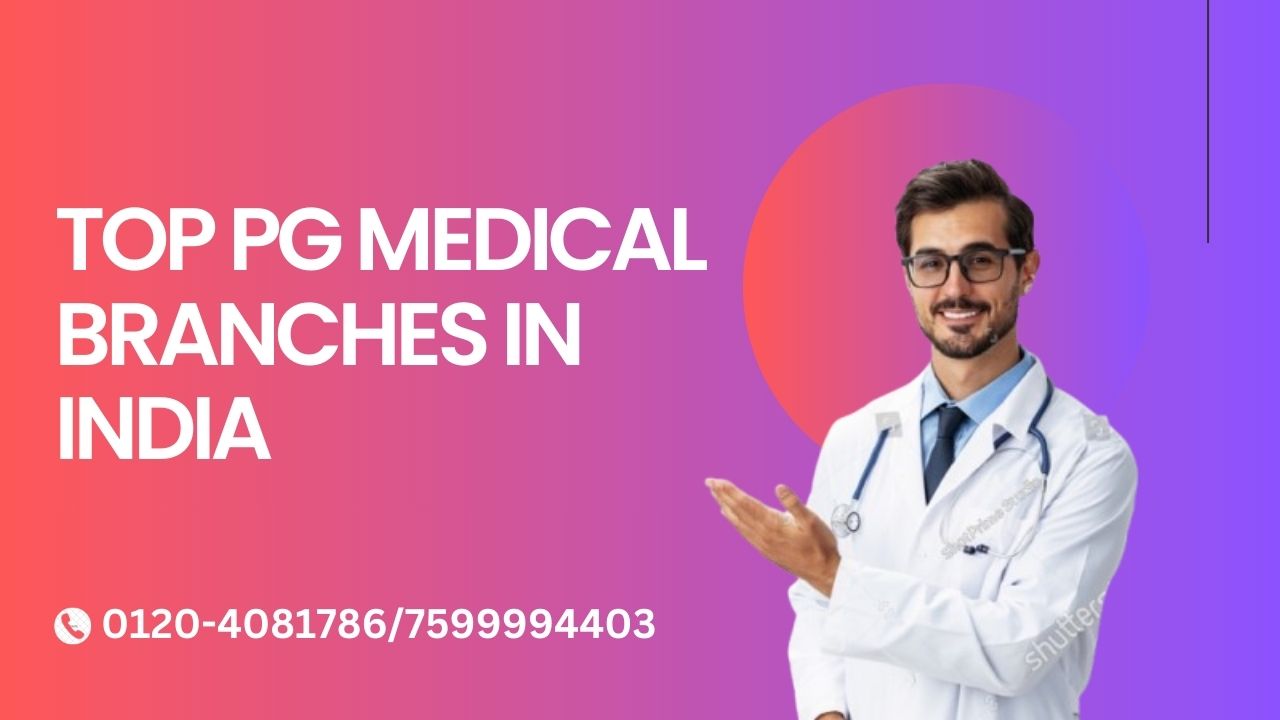NEET PG covers a good number of medical subjects to test a doctor’s knowledge and skills. It includes pre-clinical subjects like Anatomy, Physiology, and Biochemistry, para-clinical subjects such as Pharmacology, Microbiology, and Pathology, and clinical subjects like Medicine, Surgery, Pediatrics, Obstetrics & Gynecology, and more. Each subject is important for understanding diseases, their treatment, and patient care. Proper preparation in all these areas helps students perform good in the exam and become confident, skilled doctors in the future.
Anatomy in NEET PG
Anatomy is an important subject for NEET PG, forming the foundation of medical knowledge. It helps students understand the structure of the human body, including bones, muscles, nerves, and organs. A good grasp of anatomy makes it easier to learn clinical subjects later, as many medical conditions are linked to specific body structures.
For NEET PG preparation, focusing on high-weightage topics like neuroanatomy, embryology, and applied anatomy is important. Using diagrams, mnemonics, and repeated revisions can make learning easier and improve recall during exams.
Physiology in NEET PG
Physiology is a crucial subject for NEET PG as it forms the foundation of understanding how the human body functions. It helps students grasp normal body processes, which is essential before learning about diseases. Topics like cardiovascular, respiratory, and renal physiology are generally emphasized, as questions in NEET PG test both concepts and their clinical applications.
A strong grasp of physiology not only aids in scoring good but also in clinical reasoning. Relating concepts to real-life scenarios and practicing diagrams can make learning easier and more effective for exams and future practice.
Biochemistry in NEET PG
Biochemistry is an important subject for NEET PG as it forms the foundation of understanding human health and disease. It deals with the chemical processes in the body, like metabolism, enzymes, and molecular pathways, which are generally tested in exams. A clear grasp of biochemistry helps in solving clinical scenarios and multiple-choice questions effectively.
Focusing on important topics like carbohydrates, proteins, nucleic acids, and hormones makes preparation easier. Regular revision and practicing past questions improve recall and confidence, making biochemistry manageable and scoring in NEET PG.
Pharmacology in NEET PG
Pharmacology is an important subject for NEET PG aspirants because it deals with drugs, their actions, uses, and side effects. Understanding pharmacology helps in making the right treatment choices, which is important for patient care. In exams, questions often focus on drug mechanisms, adverse effects, and drug interactions, making clear concepts essential.
For effective preparation, students should focus on high-yield drugs, commonly prescribed medications, and their clinical applications. Regular revision and practicing MCQs help retain information and improve problem-solving skills.
Pathology in NEET PG
Pathology is an important subject for NEET PG preparation because it forms the backbone of understanding diseases. It explains why diseases occur, how they progress, and what changes happen in the body. For NEET PG aspirants, mastering pathology helps in answering both theory-based and clinical scenario questions with confidence.
Focusing on important topics like hematology, systemic pathology, and general pathology can make studying easier. Regular revision and solving previous years’ questions help retain concepts and improve speed, making pathology a scoring subject in NEET PG.
Microbiology in NEET PG
Microbiology is a key subject for NEET PG as it forms the foundation for understanding infections, immunity, and antibiotics. It helps students identify bacteria, viruses, fungi, and parasites, and understand their role in causing diseases. Knowledge of microbiology is crucial for diagnosing infections and planning appropriate treatment, which is a frequent focus in NEET PG questions.
Preparing microbiology effectively involves focusing on high-yield topics like bacteriology, virology, mycology, and immunology. Regular revision and practice of clinical scenarios can make learning easier and boost confidence for the exam.
Forensic Medicine & Toxicology in NEET PG
Forensic Medicine and Toxicology is an important subject for NEET PG, as it deals with the investigation of deaths, injuries, and poisoning. It helps future doctors understand how to identify causes of death, types of injuries, and effects of various toxins on the human body. Knowing this subject well can help in both exams and real-life medical practice, especially in legal and emergency scenarios.
Toxicology, a key part of this subject, focuses on poisons and drugs, their effects, and detection methods. Understanding these concepts helps doctors provide proper treatment in poisoning cases and contribute to medico-legal investigations. With clear concepts and practice, students can score well and get practical knowledge for their medical career.
Ophthalmology in NEET PG
Ophthalmology is an important subject for NEET PG aspirants, focusing on the study of eyes, their diseases, and treatments. Questions from this topic generally appear in both theory and clinical scenarios, making it essential to understand common eye conditions like cataract, glaucoma, and conjunctivitis. A clear grasp of ocular anatomy and vision-related tests also helps in scoring good.
Regular practice of previous years’ questions and revision of key concepts can make ophthalmology easier to remember. With proper focus, even this small but scoring section can boost NEET PG ranks effectively.
ENT (Ear, Nose, Throat) in NEET PG
ENT (Ear, Nose, Throat) is an important subject in NEET PG, covering common conditions like sinusitis, ear infections, throat disorders, and tumors. Understanding basic anatomy, physiology, and clinical signs is key, as questions often focus on diagnosis, management, and surgical indications.
For NEET PG preparation, focusing on high-yield topics like hearing loss, epistaxis, tonsillitis, and ENT emergencies can save time. Practicing previous year questions and visual learning through diagrams makes retention easier and helps in scoring good.
Community Medicine / Preventive & Social Medicine in NEET PG
ENT (Ear, Nose, Throat) is an important subject in NEET PG, covering common conditions like sinusitis, ear infections, throat disorders, and tumors. Understanding basic anatomy, physiology, and clinical signs is key, as questions generally focus on diagnosis, management, and surgical indications.
For NEET PG preparation, focusing on high-weightage topics like hearing loss, epistaxis, tonsillitis, and ENT emergencies can save time. Practicing previous year questions and visual learning through diagrams makes retention easier and helps in scoring good.
Orthopedics in NEET PG
Orthopedics is an important subject in NEET PG, covering the study of bones, joints, muscles, and related disorders. It focuses on conditions like fractures, arthritis, spinal problems, and congenital deformities. Understanding key concepts and clinical presentations is essential for scoring good.
For NEET PG preparation, orthopedics requires a clear grasp of common diseases, their management, and basic surgical procedures. Practicing previous questions and revising important topics like trauma, infections, and orthopedic emergencies can boost confidence and improve performance in exams.

FAQ’s
Ans- NEET PG tests around 20 subjects, including pre-clinical, para-clinical, and clinical areas, covering all essential medical knowledge and skills.
Ans- No, all subjects in NEET PG do not have equal weightage; clinical subjects generally carry more marks than pre-clinical ones.
Ans- Pre-clinical subjects form the foundation of medical knowledge, aiding understanding of clinical concepts, but carry relatively fewer marks in NEET PG.
Ans- Para-clinical subjects are high-weightage because they link basic sciences to clinical practice, frequently appearing in NEET PG questions.
Connect with Us
Start your medical educational journey with the Admission Zone! Contact us today on 9205488482/ 7599994403 or WhatsApp us to explore a world of educational possibilities in the state and secure your admission to a brighter future.
Conclusion
NEET PG covers a good number of subjects, from pre-clinical to clinical, each essential for building a good medical foundation. Subjects like Anatomy, Physiology, and Biochemistry help understand the human body, while Pathology, Pharmacology, and Microbiology explain diseases and treatments. Clinical subjects, including Medicine, Surgery, Pediatrics, and specialty areas like Ophthalmology, ENT, and Orthopedics, focus on patient care. Proper preparation, focused revision, and practicing high-yield topics make sure better understanding, confidence, and success in NEET PG exams.








